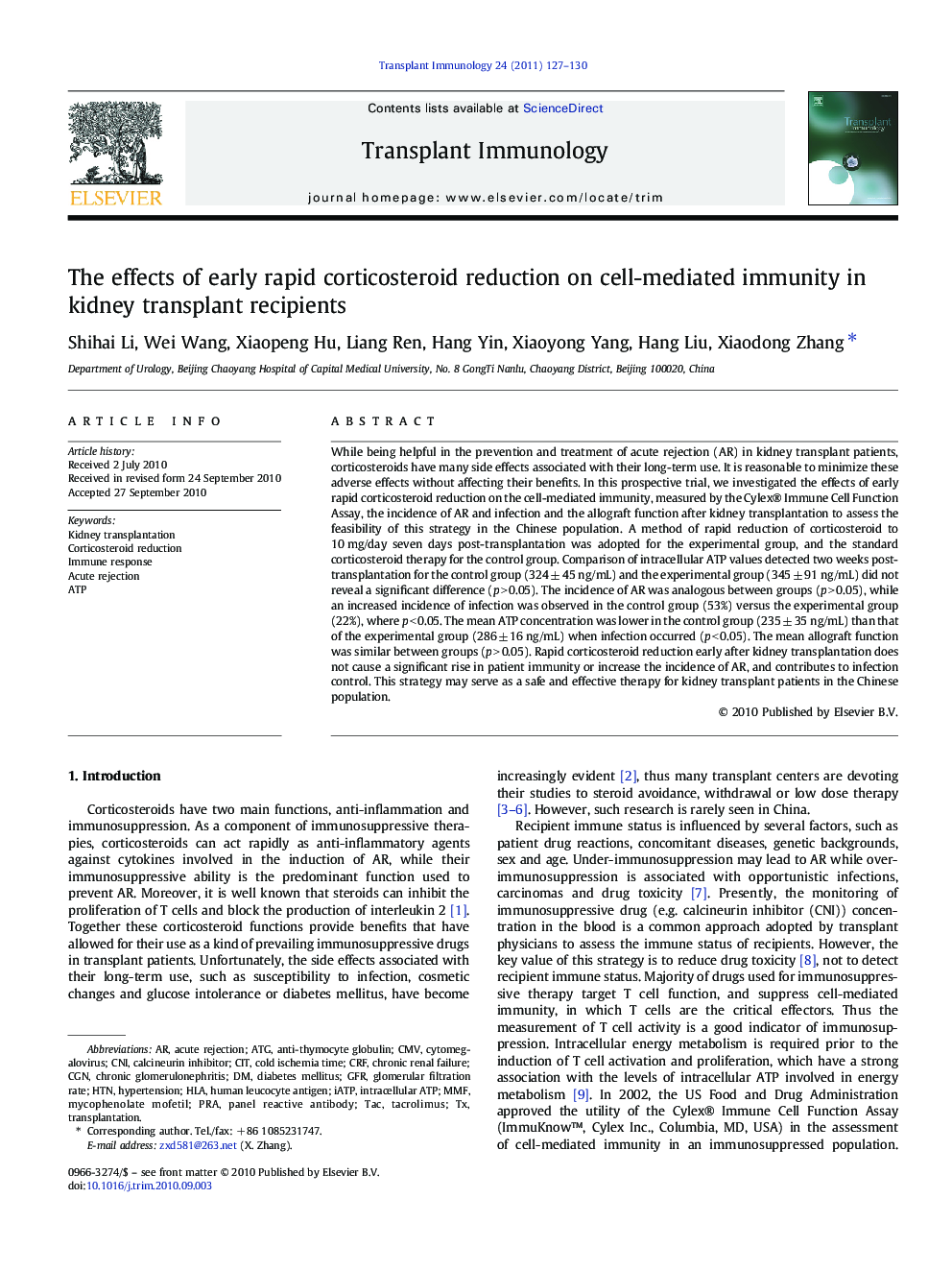| Article ID | Journal | Published Year | Pages | File Type |
|---|---|---|---|---|
| 6126109 | Transplant Immunology | 2011 | 4 Pages |
Abstract
While being helpful in the prevention and treatment of acute rejection (AR) in kidney transplant patients, corticosteroids have many side effects associated with their long-term use. It is reasonable to minimize these adverse effects without affecting their benefits. In this prospective trial, we investigated the effects of early rapid corticosteroid reduction on the cell-mediated immunity, measured by the Cylex® Immune Cell Function Assay, the incidence of AR and infection and the allograft function after kidney transplantation to assess the feasibility of this strategy in the Chinese population. A method of rapid reduction of corticosteroid to 10 mg/day seven days post-transplantation was adopted for the experimental group, and the standard corticosteroid therapy for the control group. Comparison of intracellular ATP values detected two weeks post-transplantation for the control group (324 ± 45 ng/mL) and the experimental group (345 ± 91 ng/mL) did not reveal a significant difference (p > 0.05). The incidence of AR was analogous between groups (p > 0.05), while an increased incidence of infection was observed in the control group (53%) versus the experimental group (22%), where p < 0.05. The mean ATP concentration was lower in the control group (235 ± 35 ng/mL) than that of the experimental group (286 ± 16 ng/mL) when infection occurred (p < 0.05). The mean allograft function was similar between groups (p > 0.05). Rapid corticosteroid reduction early after kidney transplantation does not cause a significant rise in patient immunity or increase the incidence of AR, and contributes to infection control. This strategy may serve as a safe and effective therapy for kidney transplant patients in the Chinese population.
Keywords
intracellular ATPanti-thymocyte globulinHTNTACCRFCITATGCGNMMFCNIPRAGFRATPPanel reactive antibodyhuman leucocyte antigenHLATacrolimusDiabetes mellitusAcute rejectioncold ischemia timecytomegalovirusCMVHypertensionmycophenolate mofetilcalcineurin inhibitorChronic renal failureGlomerular filtration rateImmune responseTransplantationKidney transplantationchronic glomerulonephritis
Related Topics
Life Sciences
Immunology and Microbiology
Immunology
Authors
Shihai Li, Wei Wang, Xiaopeng Hu, Liang Ren, Hang Yin, Xiaoyong Yang, Hang Liu, Xiaodong Zhang,
